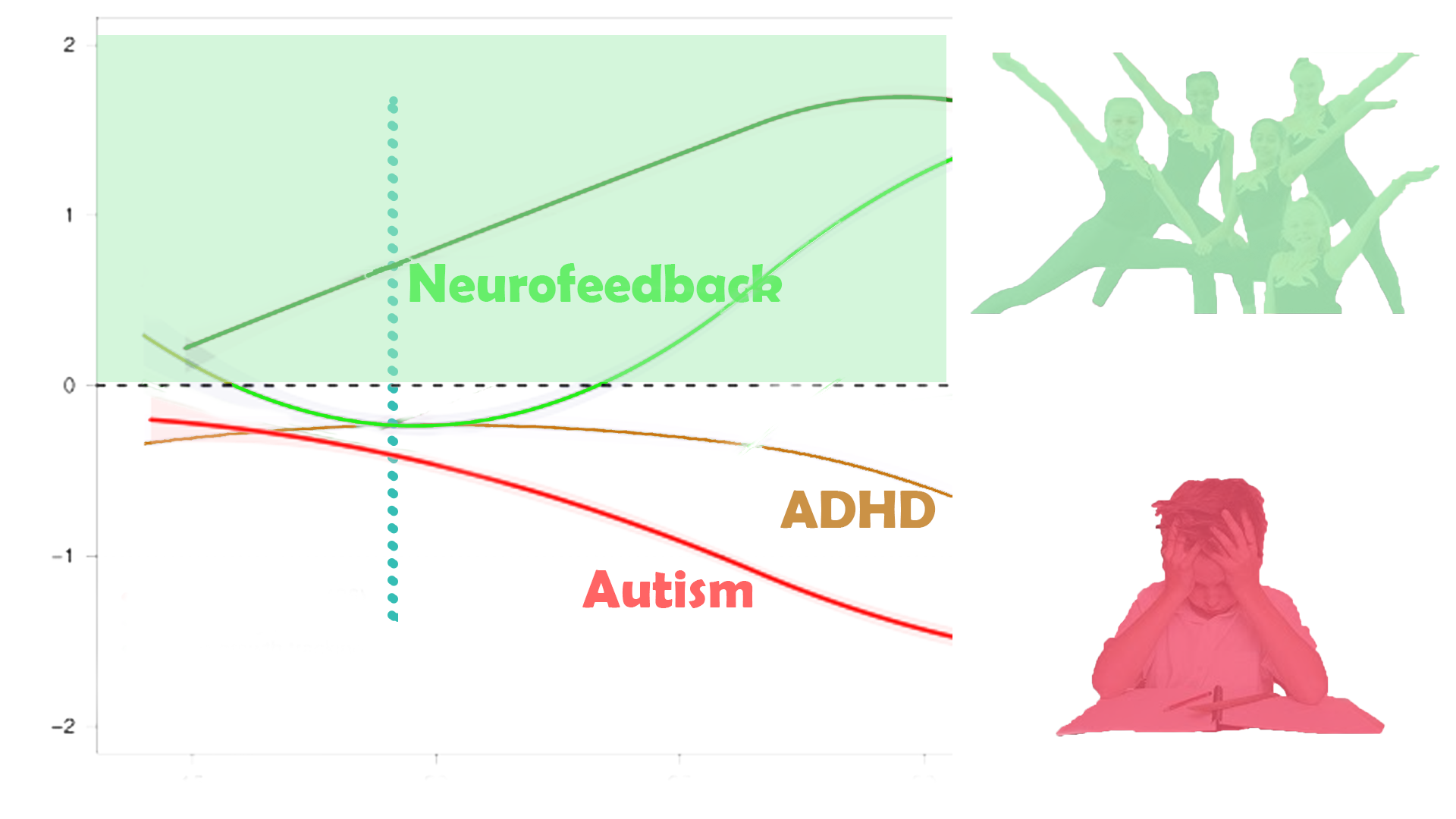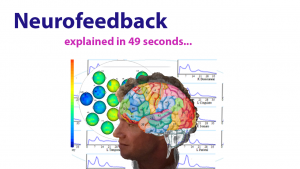Linda, 50, Menopause, Motivation
Twenty Neurofeedback Sessions restored Sleep, Motivation and Outlook
Summary:
Linda’s life took a challenging turn just before her fiftieth birthday when she realized her husband had betrayed her. This was her second marriage, and she had an eleven-year-old daughter, but she felt vulnerable and despondent. The family had weathered the pandemic’s lockdowns, though her social life suffered, and menopause added to her disorientation. Her daughter was seeking independence, often in a hurtful way. Linda, who had previously battled depression and lived a partying lifestyle in her twenties, knew she had resilience, but her stability was shaken.
Isolation and self-doubt became her norm, and she began to question whether her youthful excesses had caused brain damage. Linda was taking anti-depressants and working in a temporary sales role, which had ended. With time on her hands, she turned to neurofeedback training.
Her nervous excitement gave way to calmness as she started her first session. A brain map and a Robert De Niro film helped her relax and engage with the training. After ten sessions, her brain map showed significant improvements, especially in reactivating her prefrontal cortex, which she worried was affected by her past substance abuse. Her mood, focus, and self-confidence all improved.
Intrusive and self-critical thoughts receded, and her motivation and productivity returned. Linda was no longer reactive and despondent but took control and set rules in her life. She regained her love for music and started redecorating her home. Her social life flourished, and she embraced her role as a partner and parent.
Linda underwent twenty neurofeedback sessions over seven weeks and stopped using anti-depressant medication, with her prescribing GP’s guidance. A remap after ten sessions showed substantial changes in her brain activation, and she continued for ten more sessions. Her family noticed her transformation, and her daughter began confiding in her. Linda’s journey with neurofeedback therapy allowed her to regain her sense of self-worth and rebuild her life.
Linda's Full Story:
Linda had been betrayed by her husband. The realisation set in just before her fiftieth birthday. In her second marriage, living in her dream house with an eleven year-old daughter, she felt vulnerable and despaired. They had gotten through the lockdowns as a family, while her social life suffered, and she no longer felt her bubbly self. On top of this she was going through menopause, a disorienting experience, and her daughter was striving for teenage independence in a most hurtful way. Linda had experienced depression before, tried every medical and alternative healing path, and even been to rehabilitation as a way of setting a line to her partying lifestyle in her twenties (“rehab doesn’t work. I’ve made great friends there though!”). She knew there was a resilience in her, which after all had enabled her to transition from being a single mother with an insecure singing career to affording her current lifestyle and the stability it represented. This was now shaken.
Self-doubt and introversion were not her natural habitat, yet she felt isolated, and even began to think she had incurred brain damage as a result of her youthful excesses. Linda was taking anti-depressants and immersed herself in a temporary sales role, which had just come to an end. With time on her hands, she decided to try neurofeedback training.
Visibly nervous excitement before the first session quickly subsided. We started with a brain map, and just wearing the shower cap-like recording device made her feel calm and sleepy. This takes about half an hour, and we quickly proceeded to do a first training session. The cap is replaced with three sensors gently fitted to her head at the areas we look to train. Settling for a Robert de Niro film, Linda was quickly immersed, relaxed and amused. The morning passed swiftly and she was on her feet ready to pick her daughter up for school after the session ended. She noted that her sleep was particularly deep that night.
Linda’s brain map showed substantial deactivation of her prefrontal cortex, something she worried was a result of historic substance abuse. A remap after ten sessions showed visible improvements on this metric, as encouraging as her other improvements in mood, focus and self-confidence.
Intrusive, self-critical thoughts subsided and her motivation returned along with focus and deliberation. She felt particularly productive after each session, and this gave her great confidence. Changes were apparent in every way. Even her husband was amazed – “you’re back to your bubbly self!” Linda began feeling a healthy sense of detachment, and was no longer lifting the weight of the world by herself. She had gone from being reactive and despondent to taking control and setting the rules, which her husband obligingly acquiesced to.
A former singer in a band, she started humming tunes to herself again, and there was music playing in the house, replacing the solemn silence that was deafening upon our first meeting. Soon, projects began, she replaced artwork in the living room and began some redecorations.
Being on her own was no longer her refuge of choice; instead she rekindled productive relationships, and set aside people and places that were soaking up her energy. Her schedule filled, as she accomplished her spinning workouts before our sessions, and project partners were waiting outside as we finished.
Linda started to accept her marital situation, redeemed her sense of self-worth, and found a way to make partnership and parenthood work beyond traditional confines.
Her brain map corroborates the transition: previously absent alpha peaks emerged visibly, mirroring the cognitive resuscitation she was experiencing. Other vulnerabilities in her initial brain map included:
- mood control;
- lack of emotional safety, or feeling ‘underloved’, both by family and the world at large;
- heightened auditory sensitivity and a tendency to over-attribute emotional content into how things are said;
- focus and planning issues;
- various anxieties – “what’s next”, social anxiety, a sense of everything being directed at her, hypervigilance, and emotional betrayal
- disengagement from her surroundings.
Linda did twenty neurofeedback sessions, over the course of seven weeks, usually three per week. During this time, she had dropped the use of anti-depressant medication (in consultation with her prescribing GP / medical doctor). We did a remap after ten sessions, which showed substantial changes in her overall brain activation and guided the next ten sessions. (She had already commented, “It’s worth it!” after session five). After twenty sessions, Linda’s perceived transformation was corroborated by her final brain map. Of particular note is the way her immediate family embraced the changes, as her daughter began confiding in her.




